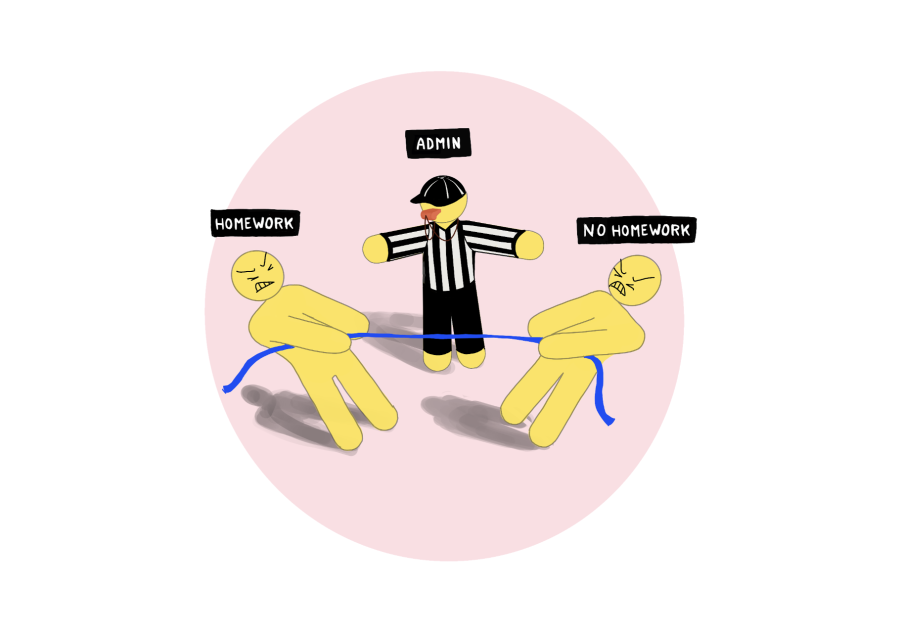In order to reduce the workload placed on students and the amount of time they spend on homework each night, the board of education directed all PAUSD schools to revise their homework policies last year.
Now, late penalties are discouraged, summer work is optional and teachers have the power to decide whether homework is graded.
Part of the board’s rationale was students should not be overburdened with homework and instead have the freedom to choose the assignments they want to complete.
However, many students and teachers alike never asked for these changes. In addition, many do not fully understand the policy.
History teacher Jack Bungarden, for instance, said he was under the false impression that teachers were not allowed to make any homework graded.
Misunderstandings and confusing policy language has lead to discrepancies in how the district policy is implemented. In fact, some teachers still penalize late work and pile on loads of homework, blatantly disregarding the guidelines.
An additional problem with the policy is that it doesn’t address policy discrepancies of teachers who teach the same class.
If one AP English Language and Composition teacher, for example, grades easier or harder than another, two students who put the same amount of effort in the class might get different grades because they have different teachers. These inconsistencies create more stress than homework does.
Homework should motivate students to break down difficult topics into manageable chunks that are repeated over a reasonable amount of time.
However, teachers often do not have enough time in class to help students practice new concepts, which makes students responsible for studying at home.
The problem with removing graded homework is that it removes the incentive to keep up a strong study routine.
Instead, without grades to motivate them, students are likely to procrastinate and fall into the trap of pulling all-nighters in order to cram before tests.
This practice is detrimental to students’ sleep schedules and can result in students not fully mastering the material because they are only studying to pass a test and not to learn.
Instead of a blanket homework policy that is inconsistently enforced, it would be better if the district focused on making grading policies and expectations uniform across all classes and teachers of a class.
To make the policy work, some changes need to be made.
Every teacher should be required to follow a single grading standard.
There should be checks and balances in the classrooms, such as standard grading guidelines that all teachers must adhere to, to ensure that all students have an equal chance of succeeding in their classes.
In this way, students have a fair chance of learning the curriculum under the same conditions as their classmates.
In addition, more communication needs to occur between administration, teachers and students so we can voice our opinions in regards to decisions that directly affect us.
For example, important decisions such as the alteration of the school’s homework policy should have been announced to the whole school beforehand, and policy makers should have sought more direct, specific student and teacher feedback.
In this way students and teachers would have the opportunity to state their opinions and create a policy that they unanimously agree on.
Furthermore, important decisions such as homework and grading policy changes, among others, should be announced to the whole school and discussed at a public forum where students and staff can state their opinions to administration so that they can be taken into consideration.
In addition to these changes, teachers should reevaluate which assignments are beneficial and which ones are busy-work.
In doing this, students will have more free time to pursue their other passions.
Part of being a healthy student is having a rounded life outside of school.
Through transparent discourse from all sides, it should be possible to find a common solution that helps students learn the material and that reflects our collective desires, all while providing a structured model that everyone can follow to ensure a strong system for learning.


